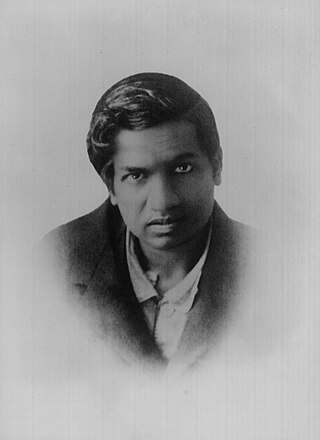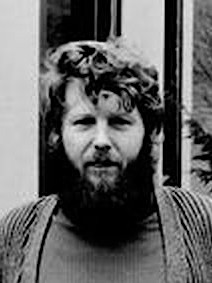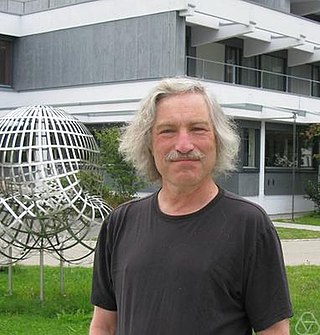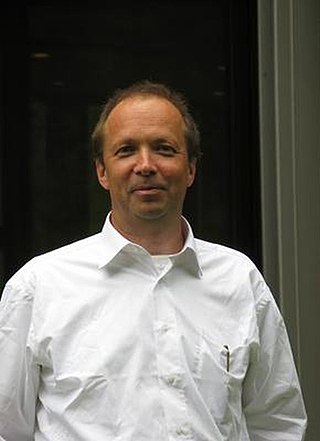Related Research Articles

Srinivasa Ramanujan (22 December 1887 – 26 April 1920) was an Indian mathematician. Though he had almost no formal training in pure mathematics, he made substantial contributions to mathematical analysis, number theory, infinite series, and continued fractions, including solutions to mathematical problems then considered unsolvable.
In mathematics, the Ramanujan conjecture, due to Srinivasa Ramanujan (1916, p. 176), states that Ramanujan's tau function given by the Fourier coefficients τ(n) of the cusp form Δ(z) of weight 12
George Neville Watson was an English mathematician, who applied complex analysis to the theory of special functions. His collaboration on the 1915 second edition of E. T. Whittaker's A Course of Modern Analysis (1902) produced the classic "Whittaker and Watson" text. In 1918 he proved a significant result known as Watson's lemma, that has many applications in the theory on the asymptotic behaviour of exponential integrals.

George Eyre Andrews is an American mathematician working in special functions, number theory, analysis and combinatorics.

Peter Clive Sarnak is a South African-born mathematician with dual South-African and American nationalities. Sarnak has been a member of the permanent faculty of the School of Mathematics at the Institute for Advanced Study since 2007. He is also Eugene Higgins Professor of Mathematics at Princeton University since 2002, succeeding Sir Andrew Wiles, and is an editor of the Annals of Mathematics. He is known for his work in analytic number theory. He also sits on the Board of Adjudicators and the selection committee for the Mathematics award, given under the auspices of the Shaw Prize.
In mathematics, a mock modular form is the holomorphic part of a harmonic weak Maass form, and a mock theta function is essentially a mock modular form of weight 1/2. The first examples of mock theta functions were described by Srinivasa Ramanujan in his last 1920 letter to G. H. Hardy and in his lost notebook. Sander Zwegers discovered that adding certain non-holomorphic functions to them turns them into harmonic weak Maass forms.
Ramanujan's lost notebook is the manuscript in which the Indian mathematician Srinivasa Ramanujan recorded the mathematical discoveries of the last year (1919–1920) of his life. Its whereabouts were unknown to all but a few mathematicians until it was rediscovered by George Andrews in 1976, in a box of effects of G. N. Watson stored at the Wren Library at Trinity College, Cambridge. The "notebook" is not a book, but consists of loose and unordered sheets of paper described as "more than one hundred pages written on 138 sides in Ramanujan's distinctive handwriting. The sheets contained over six hundred mathematical formulas listed consecutively without proofs."

Kannan Soundararajan is an Indian-born American mathematician and a professor of mathematics at Stanford University. Before moving to Stanford in 2006, he was a faculty member at University of Michigan, where he had also pursued his undergraduate studies. His main research interest is in analytic number theory, particularly in the subfields of automorphic L-functions, and multiplicative number theory.
Srinivasacharya Raghavan was an Indian mathematician who worked in number theory. He was born on 11 April 1934 in Thillaisthanam, Thanjavur, Tamil Nadu. After completing B.A. (Hons) from St. Joseph's College, Tiruchirapalli, he joined TIFR in 1954 as research student, and completed his Ph.D. in 1960 under the supervision of Professors K. Chandrasekharan and K.G. Ramanathan. He was affiliated with TIFR from 1956 until retirement in 1994, and served as Dean of Mathematics Faculty during 1986-89. He played an important role in the development of the TIFR Centre for Applicable Mathematics at Bangalore in its initial years. He also held visiting appointments at the Institute for Advanced Study, Princeton, USA, Sonderforschungsberiech at University of Goettingen, Germany, SPIC Mathematical Institute and taught at the Centre for Advanced Studies in Mathematics at the University of Mumbai for many years.

Kathrin Bringmann is a German number theorist in the University of Cologne, Germany, who has made fundamental contributions to the theory of mock theta functions.
Yasutaka Ihara is a Japanese mathematician and professor emeritus at the Research Institute for Mathematical Sciences. His work in number theory includes Ihara's lemma and the Ihara zeta function.
In mathematics, a weak Maass form is a smooth function on the upper half plane, transforming like a modular form under the action of the modular group, being an eigenfunction of the corresponding hyperbolic Laplace operator, and having at most linear exponential growth at the cusps. If the eigenvalue of under the Laplacian is zero, then is called a harmonic weak Maass form, or briefly a harmonic Maass form.

Eberhard Freitag is a German mathematician, specializing in complex analysis and especially modular forms.
Nayandeep Deka Baruah is an Indian mathematician and at present professor in the Department of Mathematical Sciences at Tezpur University, India. He is known for his work related to the mathematics of Ramanujan, in particular he and his collaborators have found several Ramanujan type congruences using different methods.
Amanda L. Folsom is an American mathematician specializing in analytic number theory and its applications in combinatorics. She is a professor of mathematics at Amherst College, where she chairs the department of mathematics and statistics.

Sergei Alekseevich Evdokimov was a Russian mathematician who contributed to the theory of modular forms, computational complexity theory, algebraic combinatorics and p-adic analysis.
Don Malcolm Blasius is an American mathematician.

Jeffrey Ezra Hoffstein is an American mathematician, specializing in number theory, automorphic forms, and cryptography.

Sebastiaan Johan Edixhoven was a Dutch mathematician who worked in arithmetic geometry. He was a professor at University of Rennes 1 and Leiden University.
Yunqing Tang is a mathematician specialising in number theory and arithmetic geometry and an Assistant Professor at University of California, Berkeley. She was awarded the SASTRA Ramanujan Prize in 2022 for "having established, by herself and in collaboration, a number of striking results on some central problems in arithmetic geometry and number theory".
References
- ↑ 27] S. P. ZWEGERS – Mock Theta Functions. Thesis, Utrecht, 2002. Republished in 2008.
- ↑ Don Zagier Ramanujan´s Mock Theta Functions and their Applications (d'après Zwegers and Bringmann-Ono), Séminaire Bourbaki, No. 986, 2007
- ↑ Peter Lynch, Timely reminder of a mathematical genius, The Irish Times, Dec 6, 2012.